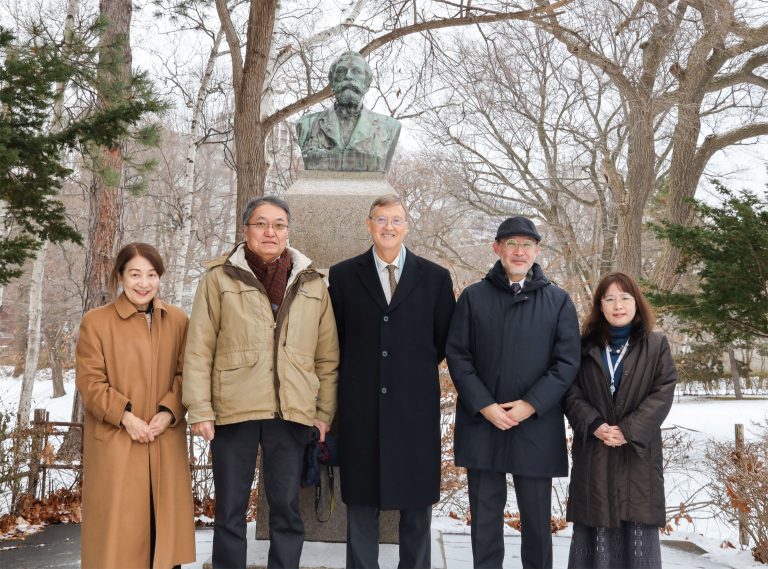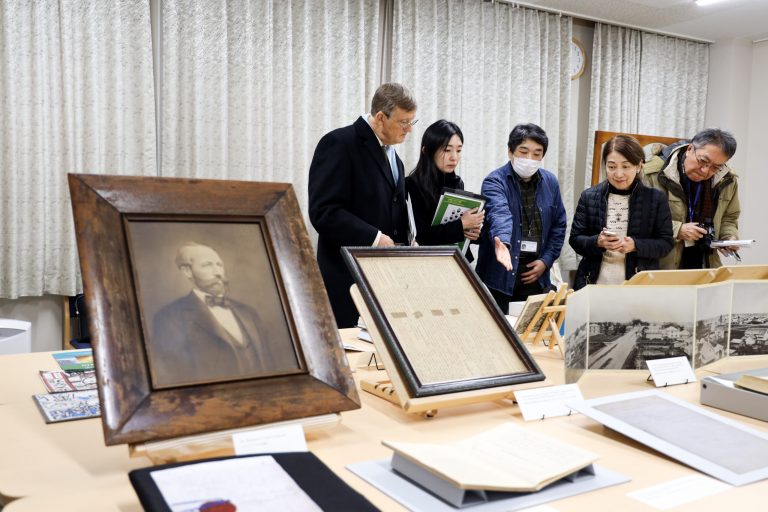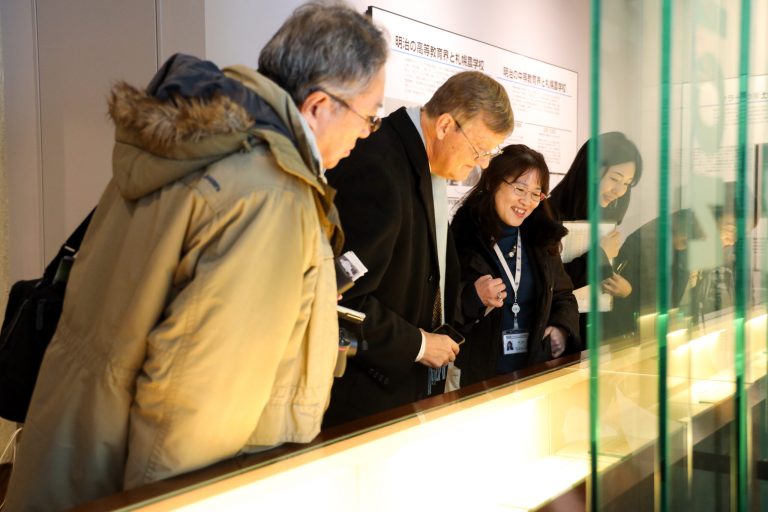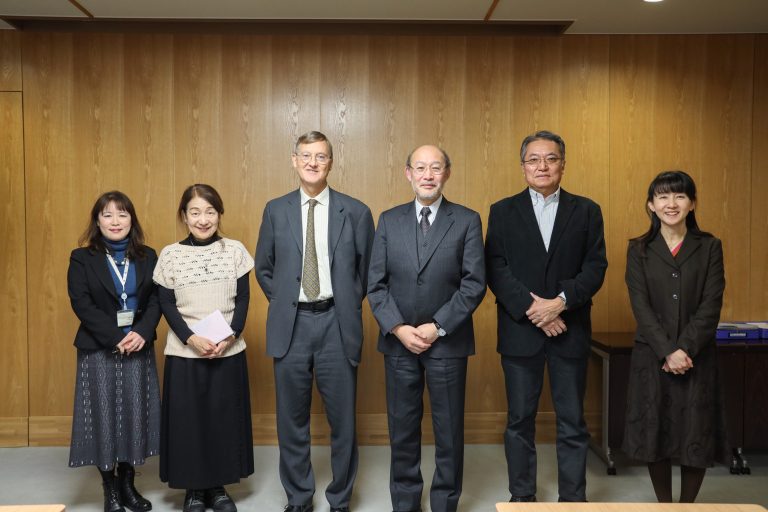Caleb Kimball King, William S. Clark’s descendant, visited Hokkaido University
Dr. William S. Clark was the first Vice-President of Sapporo Agricultural College (the predecessor to Hokkaido University). Among many of his contributions, Clark is particularly noted for having pioneered agricultural development at Hokkaido through formal education. On December 16, 2023, Clark’s great-great-grandson, Dr. Caleb Kimball King, paid a visit to the place that his ancestor helped establish almost 150 years ago.

“Be Ambitious!” is a phrase famously attributed to Clark that still echoes throughout the University. For King, “What is important is not to be ambitious but what you are ambitious about.”
Coming from a long line of a family of academics, King takes on a slightly different approach of what it is like to be a member of academia. He said that he wanted to do something more practical that can help others. Motivated by this, he learned civil and environmental engineering at Massachusetts Institute of Technology in addition to studying medicine at Harvard Medical School.
He spent 16 years living in Rwanda with his family. They helped develop and establish systems that can help the local hospitals, especially those that were destroyed during the Rwandan genocide. His holistic approach in problem-solving as a medical doctor, an engineer, and an entrepreneur led to his current position as the Executive Director of the Institute for Convergent Science at University of North Carolina (UNC) at Chapel Hill.


This visit marks his first time to both Hokkaido and Japan. His visit to Hokkaido University was accompanied by Ms. Misako Kaji, a former classmate in Oxford University. Executive Vice President Atsushi Yokota, representing Hokkaido University, greeted the guests and gave the general introduction on Hokkaido University. Upon learning about Hokkaido University’s “Frontier Spirit,” King remarked that such an aspect was very characteristic of Clark.
“The Frontier Spirit is indeed very much like Clark. Atypical for a man of his time, Clark also had gone to Germany for his PhD studies. I believe that returning to the US must have been hard for him upon having seen the other parts of the world, including Japan,” said King.
After exchanging stories of Clark and of respective universities, together with Hokkaido University representatives, King and Kaji learned further about William S. Clark’s involvement in shaping the current Hokkaido University and his ever-lasting influence.
From his visits to Hokkaido University Archive and Hokkaido University Museum, King claimed that he was very impressed by the University’s preservation of its history. He said, “People tend to only look ahead, towards the future. I think people can also move forward by learning from the past. We should know about our heritage.”

From this encounter, Dr. King also mentioned how he hopes for a collaboration between Hokkaido University and UNC. “I always admire Japan’s view that whatever they develop may help people to achieve sustainable developments. We might learn some things from Hokkaido University to understand more about impact-making. I look forward to future collaborations.”
Written by Aprilia Agatha Gunawan
